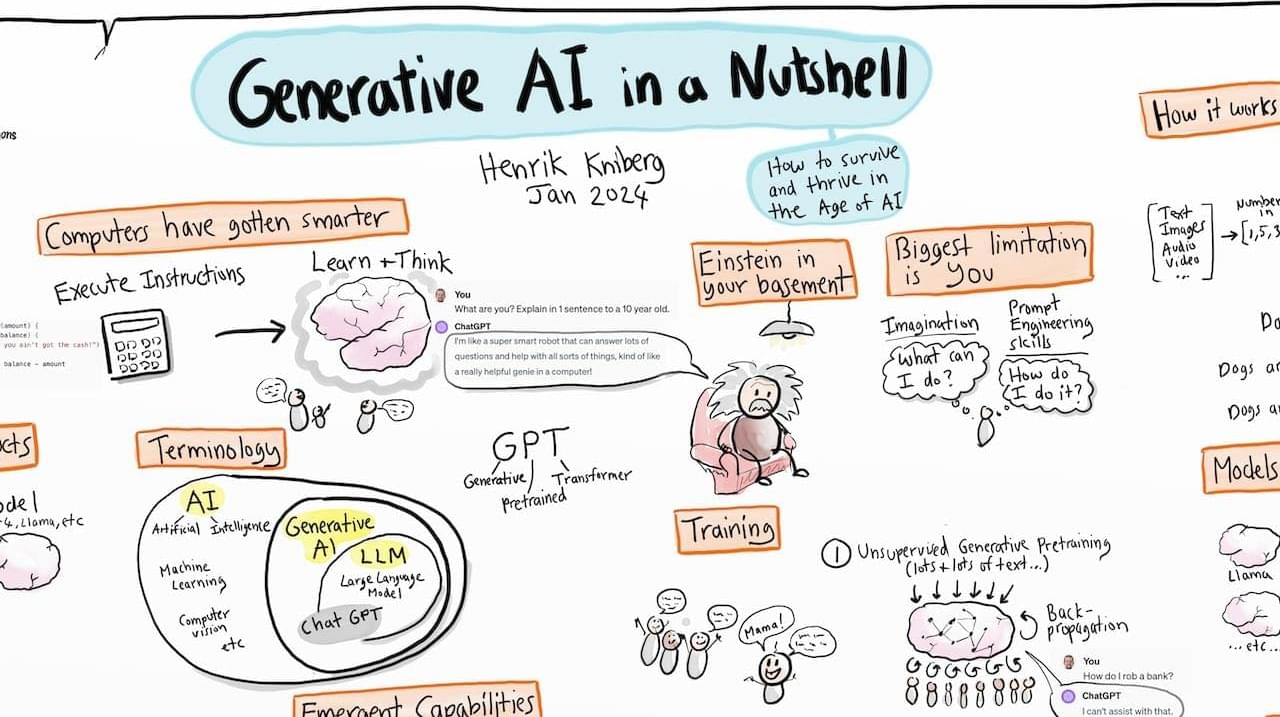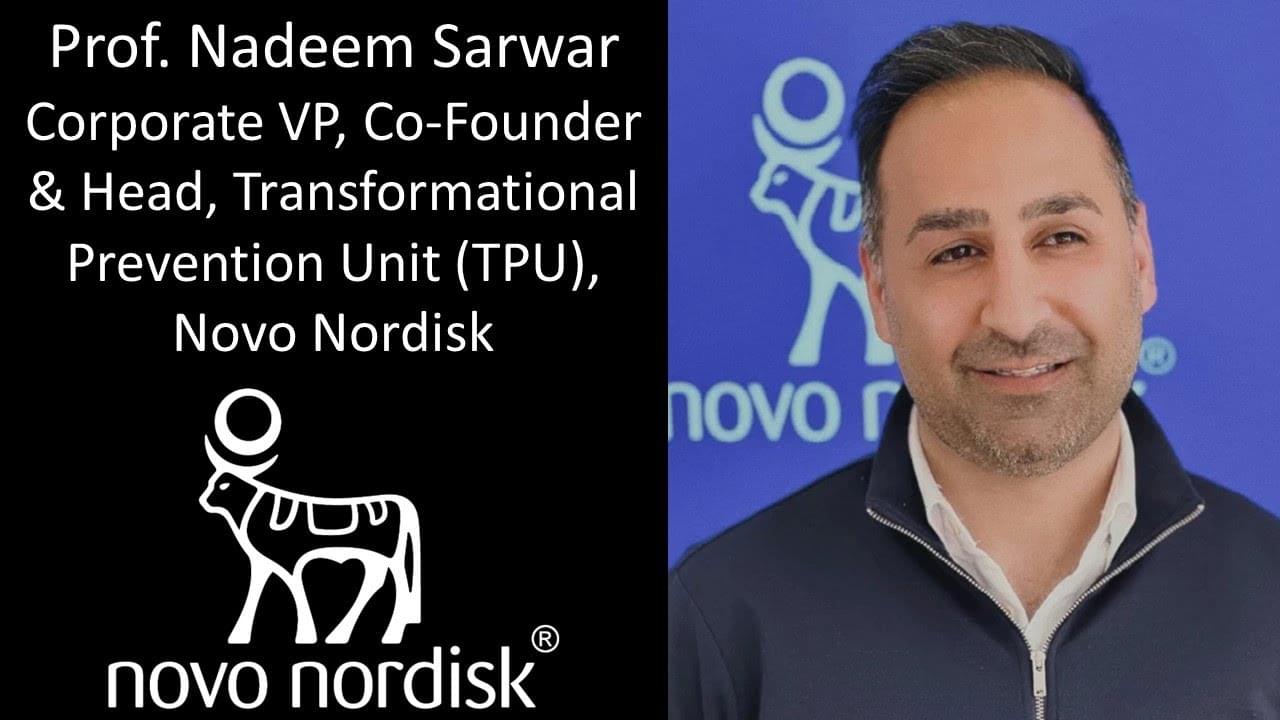🔒 Keep Your Digital Life Private and Be Safe Online: https://nordvpn.com/safetyfirst In this video, we’re going to explor…

🔒 Keep Your Digital Life Private and Be Safe Online: https://nordvpn.com/safetyfirst In this video, we’re going to explor…

In this episode, recorded during last year’s Abundance360 summit, Ray Kurzweil answers questions from the audience about AI, the future, and how this change will affect all aspects of our society.
Ray Kurzweil, an American inventor and futurist, is a pioneer in artificial intelligence, having contributed significantly to OCR, text-to-speech, and speech recognition technologies. Author of numerous books on AI and the future of technology, he’s received the National Medal of Technology and Innovation, among other honors. At Google, Kurzweil focuses on machine learning and language processing, driving advancements in technology and human potential.
Continue reading “Ray Kurzweil Q&A — The Singularity, Human-Machine Integration & AI | EP #83” »

Basically a full day AI course crammed into 18 mins of drawing & talking. Target audience: Everyone. Covers questions like What is generative AI, how does it work, how do I use it, what are some of the risks & limitations. Also covers things like autonomous agents, the role of us humans, prompt engineering tips, AI-powered product development, origin of ChatGPT, different types of models, and some tips about mindset around this whole thing. Here is the full drawing: https://blog.crisp.se/wp-content/uplo…

Professor Nadeem Sarwar is Corporate Vice President, Co-Founder and Head, Transformational Prevention Unit, Novo Nordisk (https://www.novonordisk.com/partnerin…), Co-Chair UK Dementia Mission (a UK Government Ministerial appointment) and Honorary Professor, University of Edinburgh Medical School.
Professor Sarwar joined Novo Nordisk in June 2023 as Corporate Vice President, Co-Founder and Head of Novo Nordisk’s new Transformational Prevention Unit (TPU) whose mission is to increase obesity-free life years, so people live healthier and longer lives. To achieve this, the TPU is establishing an integrated ecosystem that will deliver science-first, empowering, and scalable commercial solutions that predict and pre-empt obesity and its consequences through innovative partnerships, with solutions intending to push the boundaries of what is possible with drugs, genomics, microbiome, digital health, and behavioral science.
“We’ve solved many, if not most of the challenges, and those that we haven’t solved yet are solvable,” the company’s CEO says.
In a recent study, 151 human participants were pitted against ChatGPT-4 in three tests designed to measure divergent thinking, which is considered to be an indicator of creative thought.
Divergent thinking is characterized by the ability to generate a unique solution to a question that does not have one expected solution, such as “What is the best way to avoid talking about politics with my parents?” In the study, GPT-4 provided more original and elaborate answers than the human participants.
The study, “The current state of artificial intelligence generative language models is more creative than humans on divergent thinking tasks,” was published in Scientific Reports and authored by U of A Ph.D. students in psychological science Kent F. Hubert and Kim N. Awa, as well as Darya L. Zabelina, an assistant professor of psychological science at the U of A and director of the Mechanisms of Creative Cognition and Attention Lab.
Using the European Southern Observatory’s (ESO) Very Large Telescope (VLT), astronomers have characterized a bright quasar, finding it to be not only the brightest of its kind but also the most luminous object ever observed. Quasars are the bright cores of distant galaxies, and supermassive black holes power them.
The black hole in this record-breaking quasar is growing in mass by the equivalent of one sun per day, making it the fastest-growing black hole to date.
The black holes powering quasars collect matter from their surroundings in an energetic process that emits vast amounts of light. So much so that quasars are some of the brightest objects in our sky, meaning even distant ones are visible from Earth. Generally, the most luminous quasars indicate the fastest-growing supermassive black holes.
Proteins are nature’s polymers, governing biological processes at every level. A new study presents artificial proteins made using modern, precision polymers to intervene and alter natural processes towards a new way of developing therapeutics.
Researchers led by Northwestern University and the University of Wisconsin-Madison have introduced a pioneering approach aimed at combating neurodegenerative diseases such as Alzheimer’s disease, Parkinson’s disease and Amyotrophic lateral sclerosis (ALS).
In a new study, researchers discovered a new way to enhance the body’s antioxidant response, which is crucial for cellular protection against the oxidative stress implicated in many neurodegenerative diseases.
Transforming base materials into gold was one of the elusive goals of the alchemists of yore. Now Professor Raffaele Mezzenga from the Department of Health Sciences and Technology at ETH Zurich has accomplished something in that vein. He has not of course transformed another chemical element into gold, as the alchemists sought to do. But he has managed to recover gold from electronic waste using a byproduct of the cheesemaking process.
Electronic waste contains a variety of valuable metals, including copper, cobalt, and even significant amounts of gold. Recovering this gold from disused smartphones and computers is an attractive proposition in view of the rising demand for the precious metal.
However, the recovery methods devised to date are energy-intensive and often require the use of highly toxic chemicals. Now, a group led by ETH Professor Mezzenga has come up with a very efficient, cost-effective, and above all far more sustainable method: with a sponge made from a protein matrix, the researchers have successfully extracted gold from electronic waste.
